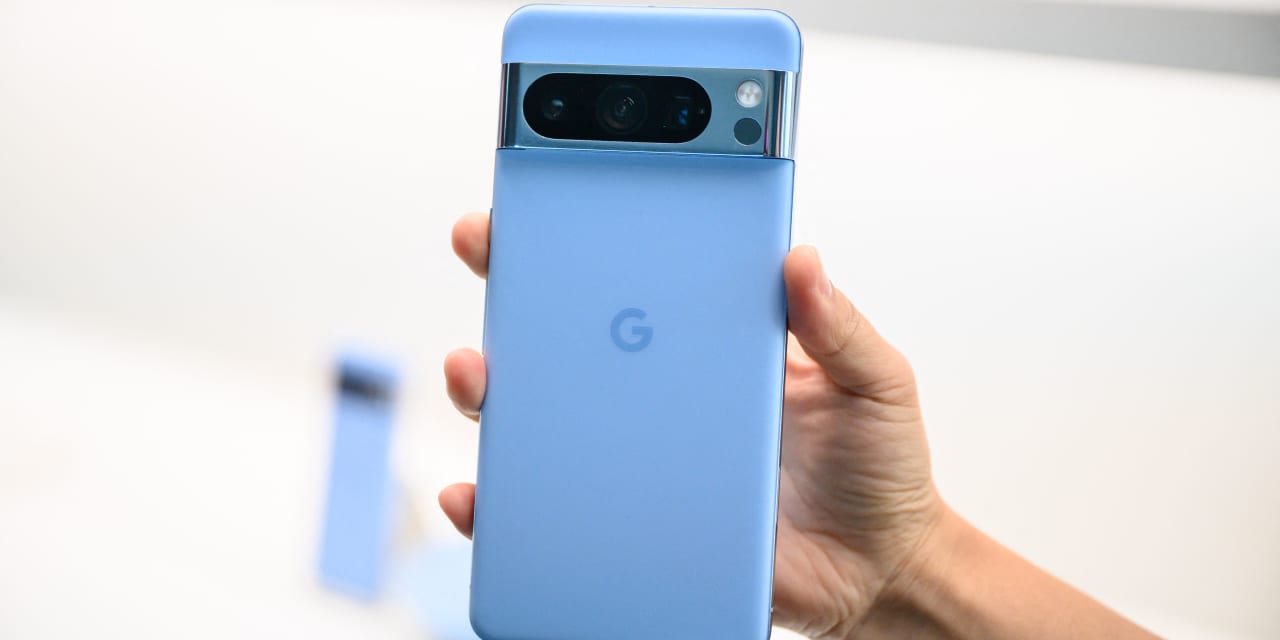This year, the main competition between
Apple
and Google seems to be which company can make the most incremental update for their phones. It’s a close call.
On Wednesday,
Alphabet
‘s (ticker: GOOGL) Google introduced its latest phone lineup. Similar to the iPhone 15 announcement last month, the enhancements were minor. Google’s Pixel 8 and Pixel 8 Pro include slightly faster processors, slightly better cameras, and slightly nicer displays, all in a design similar to last year’s model. Despite the modest changes, Google increased the prices of the two models by $100 to $699 and $999, respectively.
Apple
(AAPL) largely kept its iPhone prices in check.
What happened to real smartphone progress? These annual product unveilings to show off the new models used to be the most exciting and anticipated technology events of the year. No longer. The lack of “must have” features in the 2023 lineups for iPhones and Pixels offer little incentive for current owners to upgrade. According to Wall Street estimates as tracked FactSet, iPhone unit sales are only expected to rise 2% over the next year.
The problem for Apple and Google is they’re not just competing against each other for consumers’ wallets. They’re competing against the phones people already have in their pockets. Without compelling reason to pay $1,000 for the latest piece of hardware, consumers will undoubtedly take the cheaper path. That’s particularly problematic for Apple, which still generates more than half of its revenue from sales of new iPhones.
This dynamic isn’t set in stone, though. There’s now a clear gap between the capabilities of AI technology and what we find on our phones. Adding AI-powered digital assistants would go a long way in kick-starting the upgrade cycle.
My colleague Eric Savitz writes in this week’s Tech Trader column that the emergence of ChatGPT has made Siri feel “downright ancient.” A more capable AI-powered service on iPhone and Android devices would make a large difference in the daily productivity for users.
This week did bring some hope toward the fusing of AI and smartphones.
At its product event Wednesday, Google showed off a new version of its digital assistant that integrated generative AI capabilities from its Bard chatbot. It can pull in information and context from emails and provide summaries of personal documents. It’s not a launch feature in the latest Google Pixel, though, which goes on sale Oct. 12.
A Google executive said Assistant with Bard “is still an early experiment” rolling out to testers soon. The company plans on making it available to iPhone and Android users in the coming months.
For years, companies have talked up the potential for a more intelligent AI assistant that could take actions on a user’s behalf, from planning trips and booking reservations to shopping for the best product. Apple and Google can’t afford to waste more time. AI could be the tech industry’s best—and maybe only— hope at making the smartphone exciting again.
Write to Tae Kim at tae.kim@barrons.com
Read the full article here













Leave a Reply